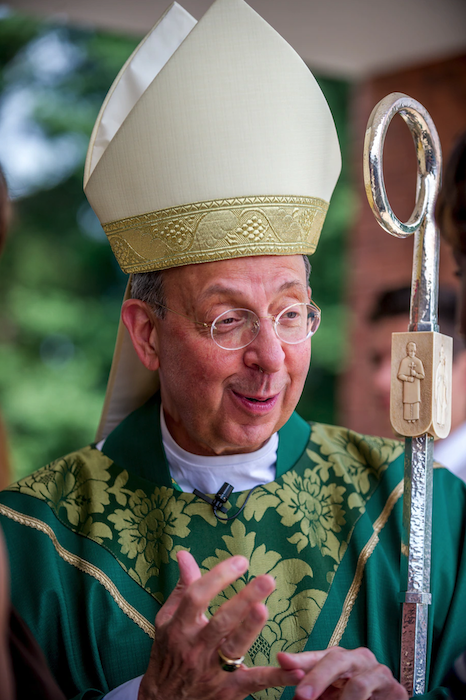
The Catholic Archdiocese of Baltimore signaled Friday that it might object to a still-unreleased report by the Maryland attorney general into clergy sexual abuse of minors.
The report, by the office of outgoing Attorney General Brian E. Frosh, took nearly four years to complete and tallies more than 600 young victims and 158 abusive priests over 80 years, according to a court filing Thursday.
Because the 456-page report includes testimony that resulted from grand jury subpoenas, a judge must approve its release. The filing in Baltimore City Circuit Court requests its release.
Christian Kendzierski, a spokesman for the archdiocese led by Archbishop William E. Lori, wrote back Friday to The Washington Post’s asking if the church would contest the report’s release.
“The Archdiocese does not object to the release of a report which accurately details the heinous crime and sin of child sexual abuse perpetrated by members of the clergy and also fairly and accurately details how the Archdiocese responded to such allegations, even when the response fell far short of how such allegations are handled today,” his statement read. “The motion filed by the Maryland Attorney General does not reflect the Archdiocese’s current and decades-long strong pastoral response and handling of allegations of child sexual abuse.”
The report is the second of its kind, following an explosive one from a Pennsylvania grand jury in 2018 that led to the arrest of priests, early retirement for an archbishop and new policies. It also included many decades-old cases, something victims and their advocates said was essential since in most cases higher-ups were never held responsible and often priests retired and were still paid and remained clergy. Even if statutes of limitation made civil, canonical or criminal cases unfeasible, advocates said, the detailed compiling of how the cases happened and were handled, and the cost to the abused, was a kind of justice.
The archdiocese since January 2019 has cooperated with Frosh’s office, turning over more than 100,000 pages, the statement from the archdiocese’s spokesman said.
On Friday Kendzierski’s statement said the archdiocese would “continue to cooperate with any legal processes relating to the Attorney General’s investigation. The Archdiocese is participating in the court process and understands that the courts rightly expect the law on grand jury materials to be followed and due process to be respected.”
Requests to the archdiocese for greater clarity weren’t answered late Friday.
It wasn’t clear what legal argument the archdiocese might be planning to make. In Pennsylvania, church officials fought the attorney general over the inclusion of specific names of accused clergy who had not been charged, saying that to name them violates their constitutional rights. For weeks, court and state lawyers were in court arguing about the redacting of names and entire sections and what could be released.
Frosh spokeswoman Raquel Coombs said, “It is our hope that the Archdiocese will not oppose release of the report to provide victims long awaited relief and healing.”
Complete Article ↪HERE↩!
